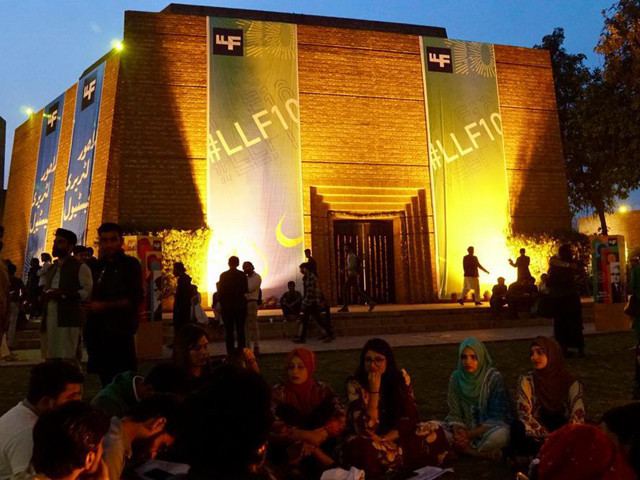LLF delves into ideas and culture
Citizens throng thought-provoking sessions, music performances

The second day of the Lahore Literary Festival (LLF) unfolded as a tapestry weaving together profound ideas, artistic milestones and cultural reflections.
A large number of citizens participated in the cultural and literary activities at Alhamra Arts Centre. The day began with a book launch session titled ‘Lahore cinema: Between realism and fable’ that was hosted by Nasreen Rehman, a screenwriter, historian and translator. The guest, Professor Iftikhar Dadi, talked about his book covering the origin, peak, crisis and different phases of the Pakistan film industry. He said Lahore was a centre of film production in the 1920s, which produced super hit films.
“The relationship between Lahore and Bombay with respect to the industry continued and films on similar subjects were produced in Pakistan and India in the 1950s and 60s. The film Anar Kali was produced in Lahore in 1958, while the super hit Mughal-e-Azam was produced in Bombay in 1960. The music, production style and stories revolved around similar subjects,” he added.
Professor Dadi eulogised the role of film producers and musicians of the era, especially Riaz Shahid, Saadat Hassan Manto and Khawaja Khursheed Anwar.
In another session, poet Michael Cirelli from the United States and his wife Dr Sara Zaidi discussed their initiative in Pakistan to promote local poets.
In a thought-provoking session, ‘Writing the other’, literary giants Mohsin Hamid, Monica Ali, Jose Luis Peixoto and HM Naqvi delved into the art of infusing emotions into characters.
As an autobiography unveiling of Salman Farooqui took centre stage, former WAPDA chairman Shakeel Durrani and columnist Rashid Amjad shared insights into the writer’s private and social life, discussing his impact on art and society. Amjad hailed him as a metaphor for resilience.
The exploration of digital frontiers continued with a panel comprising of Roshaneh Zafar, Momina Aijazuddin and Sadaffe Abid offering a glimpse into a future where technology intersects with social impact. The session moderated by Professor Taimur Rahman resonated as a call for innovation in the battle against poverty.
The intellectual kaleidoscope turned with sessions like a discussion on ‘The widening war’ in the Middle East, and a captivating journey through the artistic milestones of Shakir Ali, Zahoorul Akhlaq and Imran Qureshi.
Meanwhile, musical performances continued on the lawns. Traditional food and bookstalls were also set up.
Published in The Express Tribune, February 25th, 2024.



















COMMENTS
Comments are moderated and generally will be posted if they are on-topic and not abusive.
For more information, please see our Comments FAQ